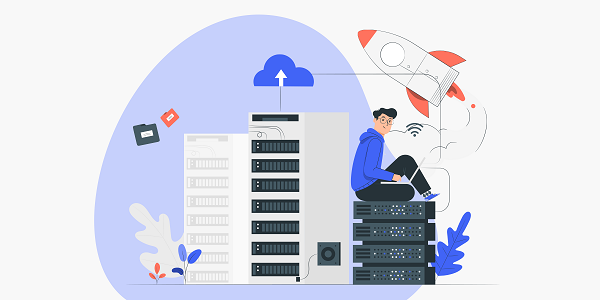Residential Proxies
Allowlisted 200M+ IPs from real ISP. Managed/obtained proxies via dashboard.

Proxies
Residential Proxies
Allowlisted 200M+ IPs from real ISP. Managed/obtained proxies via dashboard.
Residential (Socks5) Proxies
Over 200 million real IPs in 190+ locations,
Unlimited Residential Proxies
Use stable, fast, and furious 700K+ datacenter IPs worldwide.
Static Residential proxies
Long-lasting dedicated proxy, non-rotating residential proxy
Dedicated Datacenter Proxies
Use stable, fast, and furious 700K+ datacenter IPs worldwide.

Web Unblocker
View content as a real user with the help of ABC proxy's dynamic fingerprinting technology.
Proxies
API
Proxy list is generated through an API link and applied to compatible programs after whitelist IP authorization
User+Pass Auth
Create credential freely and use rotating proxies on any device or software without allowlisting IP
Proxy Manager
Manage all proxies using APM interface

Proxies
Residential Proxies
Allowlisted 200M+ IPs from real ISP. Managed/obtained proxies via dashboard.
Starts from
$0.77/ GB
Residential (Socks5) Proxies
Over 200 million real IPs in 190+ locations,
Starts from
$0.045/ IP
Unlimited Residential Proxies
Use stable, fast, and furious 700K+ datacenter IPs worldwide.
Starts from
$79/ Day
Rotating ISP Proxies
ABCProxy's Rotating ISP Proxies guarantee long session time.
Starts from
$0.77/ GB
Static Residential proxies
Long-lasting dedicated proxy, non-rotating residential proxy
Starts from
$5/MONTH
Dedicated Datacenter Proxies
Use stable, fast, and furious 700K+ datacenter IPs worldwide.
Starts from
$4.5/MONTH
Knowledge Base
English
繁體中文
Русский
Indonesia
Português
Español
بالعربية

Proxies have become an essential tool for web scraping, enabling users to gather data from websites quickly and efficiently. As the demand for web scraping grows, the need for proxies that can scale up to meet this demand has become increasingly important. In this blog post, we will explore four ways proxies can scale up web scraping operations, providing practical solutions for users looking to improve their data collection processes.
Before delving into the specific ways proxies can help scale up web scraping, it's crucial to understand why scalability is essential in this context. As the volume of data on the internet continues to increase, web scrapers must be able to handle larger workloads efficiently. By scaling up web scraping operations, users can collect data more quickly, accurately, and reliably, giving them a competitive edge in the data-driven business landscape.
One of the most effective ways to scale up web scraping using proxies is by utilizing a rotating IP address system. By rotating IP addresses, users can distribute their web scraping requests across multiple IP addresses, reducing the risk of being blocked by websites. This method also allows users to scrape data at a faster rate and with higher anonymity, enhancing overall scraping performance.
Another crucial aspect of scaling up web scraping is implementing a load balancing strategy. Load balancing involves distributing web scraping requests evenly across multiple proxies to prevent any single proxy from becoming overwhelmed. By spreading the workload in this way, users can improve scraping efficiency, reduce downtime, and ensure consistent data collection.
Managing a diverse and reliable proxy pool is key to scaling up web scraping effectively. A proxy pool consists of a large number of proxies from different locations and providers, giving users the flexibility to switch between proxies as needed. By maintaining a well-maintained proxy pool, users can access a wide range of IP addresses, increase scraping success rates, and adapt to changing website restrictions.
Lastly, continuous monitoring and optimization of proxy performance are essential for scaling up web scraping operations. By monitoring proxy health, response times, and success rates, users can identify and address issues proactively. Optimization strategies such as adjusting request frequency, fine-tuning proxy rotation settings, and implementing CAPTCHA-solving mechanisms can further enhance scraping efficiency and reliability.
In conclusion, proxies play a vital role in scaling up web scraping operations, enabling users to collect data at a larger scale with greater efficiency and reliability. By implementing rotating IP addresses, load balancing, proxy pool management, and monitoring and optimization strategies, users can overcome common challenges in web scraping and achieve their data collection objectives effectively. With the right proxy infrastructure in place, web scrapers can unlock new opportunities for growth and innovation in an increasingly data-driven world.
Featured Posts
Popular Products
Residential Proxies
Allowlisted 200M+ IPs from real ISP. Managed/obtained proxies via dashboard.
Residential (Socks5) Proxies
Over 200 million real IPs in 190+ locations,
Unlimited Residential Proxies
Use stable, fast, and furious 700K+ datacenter IPs worldwide.
Rotating ISP Proxies
ABCProxy's Rotating ISP Proxies guarantee long session time.
Residential (Socks5) Proxies
Long-lasting dedicated proxy, non-rotating residential proxy
Dedicated Datacenter Proxies
Use stable, fast, and furious 700K+ datacenter IPs worldwide.
Web Unblocker
View content as a real user with the help of ABC proxy's dynamic fingerprinting technology.
Related articles

What are some free web scraping tools
This article reviews 5 types of free web scraping tools, analyzes their core functions and applicable scenarios, and discusses how to improve data collection efficiency in combination with proxy IP.

How to efficiently extract image data from URL
This article explores the technical logic and efficiency optimization of URL image extraction, analyzes the core role of proxy IP in data crawling, and introduces how abcproxy can improve the stability and success rate of image collection through professional proxy services.